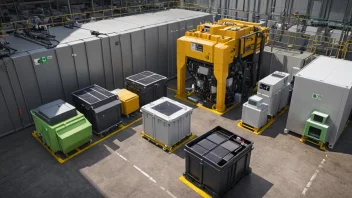Introduction
The rise of automation is reshaping various industries, and the engineering workforce is no exception. As technology advances, engineers are finding themselves in a rapidly evolving landscape where automation tools and processes are increasingly integrated into their daily tasks. This article will explore the top seven ways automation is impacting the engineering workforce, providing insights into how these changes are redefining roles, enhancing productivity, and influencing career paths.
1. Enhanced Efficiency
Automation tools streamline repetitive tasks, allowing engineers to focus on more complex and creative aspects of their work. By automating routine calculations, data entry, and report generation, engineers can significantly reduce time spent on mundane tasks.
2. Improved Accuracy
Automation minimizes human error, leading to higher accuracy in engineering projects. Automated systems can perform calculations and analyses with precision, ensuring that designs and specifications meet required standards without the risk of oversight.
3. Greater Collaboration
Automation fosters collaboration among engineering teams by providing shared platforms for project management and communication. Tools like cloud computing allow for real-time updates and feedback, enabling engineers to work together more effectively, regardless of their physical locations.
4. Skill Evolution
As automation tools become more prevalent, the skills required for engineering roles are evolving. Engineers are now expected to have a blend of technical knowledge and familiarity with automated systems, prompting a shift in educational programs and professional development initiatives.
5. Job Creation in New Areas
While some fear that automation may lead to job losses, it is also creating new opportunities within the engineering sector. Roles focused on developing, maintaining, and optimizing automated systems are on the rise, necessitating a workforce skilled in both engineering principles and automation technologies.
6. Increased Focus on Innovation
With automation handling routine tasks, engineers can dedicate more time to innovation and problem-solving. This shift encourages a culture of creativity, where engineers can explore new ideas and technologies that push the boundaries of what is possible in their fields.
7. Flexibility in Work Arrangements
Automation allows for more flexible work environments. Engineers can leverage remote working tools and automated systems to manage projects from anywhere, leading to improved work-life balance and job satisfaction.
Conclusion
The impact of automation on the engineering workforce is profound and multifaceted. From enhancing efficiency and accuracy to creating new job opportunities and fostering innovation, automation is redefining the engineering landscape. As engineers adapt to these changes, ongoing education and skill development will be essential to thrive in this new era of technology-driven engineering.






